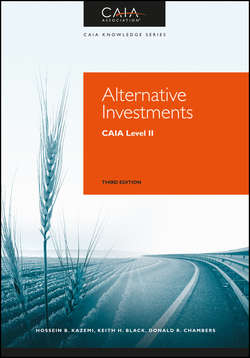Читать книгу Alternative Investments - Black Keith H. - Страница 74
На сайте Литреса книга снята с продажи.
Part 1
Asset Allocation and Institutional Investors
CHAPTER 3
The Endowment Model
3.4 Why Might Large Endowments Outperform?
3.4.4 Access to a Network of Talented Alumni
ОглавлениеPerhaps the first-mover advantage and the manager-selection skill of top endowments can be attributed to the superior network effect. An institution has a positive network effect when it has built relationships with successful people and businesses that may be difficult for others to emulate. Alumni of the universities in Exhibit 3.1 are noted for being among the most successful U.S. college graduates, in terms of both academics and business. As measured by scores on the SAT® exam,20 Harvard, Yale, Stanford, Princeton, and the Massachusetts Institute of Technology routinely select from the top 1 % to 5 % of students. In 2003, the median SAT score for all college-bound students, including both verbal and mathematics scores, was approximately 1,000. Top universities attract students with average scores exceeding 1,400. Graduates of these schools also tend to have the highest initial and midcareer salaries.
A study by Li, Zhang, and Zhao (2011) correlated manager-specific characteristics to the returns of the hedge funds they managed. In contrast to the median SAT score of all college-bound students of 1,000, Li, Zhang, and Zhao found that the middle 50 % of hedge fund managers attended colleges and universities with average SAT scores between 1,199 and 1,421 (the 79th and 97th percentiles, respectively), demonstrating that the majority of hedge fund managers attended the most competitive colleges and universities. Within the group of studied hedge fund managers, the research showed that those who attended undergraduate colleges with higher average SAT scores have higher returns and lower risk. For example, a 200-point difference in SAT scores, such as that between 1,280 and 1,480, was correlated with higher annual returns of 0.73 %. Not only did managers who attended top universities have higher returns, but they did so at lower risk and earned greater inflows during their tenures as fund managers. The authors suggest that talented managers are attracted to hedge funds due to the incentive fee structure, which rewards performance over asset gathering. In contrast to their studies on hedge fund managers, Li, Zhang, and Zhao found that SAT scores did not seem to affect the asset gathering or excess returns earned by mutual fund managers, as these managers are compensated for gathering assets, not for earning excess returns.
Many alumni of top universities wish to continue an association with their alma mater, the university from which they received their undergraduate degree. The ability of top endowment funds to outperform can be perpetuated by this important network of relationships, to the extent that these talented professionals either choose to work for the university's endowment fund or guarantee the endowment investment access to the funds they manage.
Barber and Wang (2013) show that the strong returns earned by endowments are directly traced to the size of their alternative investment exposure. Alphas earned by Ivy League schools exceed 3 %, while 30 other schools with top SAT scores earned an alpha exceeding 1.7 %. There is a reliably positive alpha and return spread between schools with top SAT scores and schools with average scores.
20
SAT is a registered trademark of the College Board.
